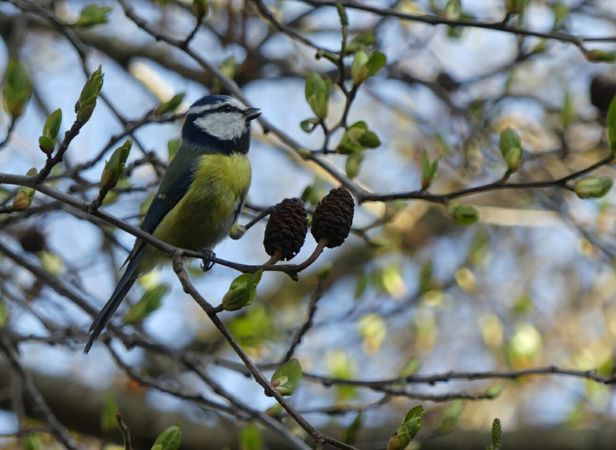Nature’s symphony: the benefits of natural sounds

It’s Wales Nature Week and a great time to think about the effect of nature on our well-being. Here, our health advisor, Ruth Thomas, explains how sound can affect our mental well-being in different ways.
The nature of sound
You may be aware that noise is an important public health issue - the negative impacts on human health and well-being are well-documented. But have you ever considered that sound can be good for our health too?
There is no physical difference between noise and sound, they are both vibrations. The difference is how we react to sounds. Noise is simply defined as unwanted sound.
Listening to nature’s sounds (or “nature’s symphony”, as I like to call it) offers significant benefits to our physical and mental health, as well as a greater connection to nature.
The sound of birdsong, wind rustling through the trees and crashing ocean waves all have the extraordinary power to induce tranquillity and relaxation.
Studies have shown that listening to natural sounds alters our brain’s connections. It reduces our body's natural fight-or-flight instinct, helps to alleviate stress, lessens anxiety, and enhances our mental health and well-being.
Not only can nature’s sounds aid us in falling asleep, they also enhance the quality of our sleep, resulting in us feeling more rejuvenated upon waking.
Some sound advice
Here are some ways you can use sound to benefit your well-being:
- Switch off your tech and look up. Tap into the different and unusual sounds you don’t normally hear. Research has found that seeing or hearing birds is associated with an improvement in mental wellbeing that can last up to eight hours.
- Sit under a tree or on a bench and allow yourself to engage with the sounds of nature while taking deep breaths.
- Follow a river or stream and listen to the sound of flowing water - it is known to lower anxiety levels and assists us in falling sleep.
You can listen out for nature’s symphony while walking around your local neighbourhood, or you could use our Days Out website to find your nearest woodland or National Nature Reserve where you’ll be immersed in natural sounds.
If you would like to enjoy nature from the comfort of your home, you can hear forest sounds on our Osprey webcam at Llyn Clywedog on YouTube, or you can relax with ‘Chill Cymru’ - live views from around Wales on Visit Wales’ website.
Have you ever wondered where the quietest places in Wales are, with the least urban noise? Use our tranquillity maps to find out.
If you’ve called our customer helpline recently, you may have noticed we’ve swapped our holding music from classical to birdsong.
References
Buxton. R. T; Pearson A.L et al. (2021) A synthesis of health benefits of natural sounds and their distribution in national parks (pnas.org)
Gould van Praag, C.D Garfinkel, S.Net al. (2017) Mind-wandering and alterations to default mode network connectivity when listening to naturalistic versus artificial sounds | Scientific Reports (nature.com)
Hammoud, R., Tognin, S., Burgess, L. et al. (2022) Smartphone-based ecological momentary assessment reveals mental health benefits of birdlife | Scientific Reports (nature.com)
Yeo, Kyoung-Su; Kim, Myung-Sook; Bae, Myung-Jin (2015) Acoustic Characteristics of the Forest Sounds Inducing Sleep. International Information Institute (Tokyo). Information; Koganei Vol. 18, Iss. 10,: 4407-4412.
